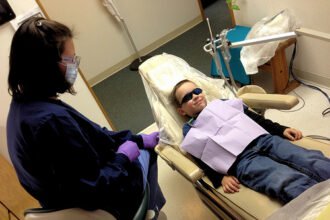
“Hospital-acquired infections from all causes are estimated to cause >90,000 deaths per year in the United States and are the sixth leading cause of death nationally,” a CDC study revealed. Any large organization such as a hospital is bound to let people fall through the cracks. Become an empowered patient and improve the safety of your hospital stay by getting involved in your care.

“Hospital-acquired infections from all causes are estimated to cause >90,000 deaths per year in the United States and are the sixth leading cause of death nationally,” a CDC study revealed. Any large organization such as a hospital is bound to let people fall through the cracks. Become an empowered patient and improve the safety of your hospital stay by getting involved in your care.
Prevent and control infections
- Catheters – Ask your doctor whether you still require a catheter. According to the CDC, leaving it in place for too long increases the risk of infection. If you spot redness or drainage or feel soreness around the catheter or surgical incision site, or if your bandages look wet, dirty or fall off, inform your nurse or doctor.
- Clean hands – If you spot a healthcare provider or visitor not washing their hands, ask them to.
- New needles – Ask your healthcare provider if they are using new needles, syringes and vials for your care.
- Spot C. diff. – Let your doctor know if you have severe diarrhea, especially if it occurs while on an antibiotic.
Getting help at the hospital
- Nurses – The bedside nurse is your first point of contact and should be the one you turn to for most issues. If she’s not serving you properly resolve the issue with the charge nurse. If that fails, turn to the nurse manager or supervisor.
- Doctors – If you have issues with your resident doctor, turn to the attending physician or hospitalist. If that fails, ask for the department head, the highest in command.
- Social services – If you have a hard time communicating with your nurse and doctor ask for a social service staff member, who can assist in communication, provide patient support and schedule family meetings.
For more information on the healthcare hierarchy in hospitals, read Getting the Help You Need in the Hospital.
Keep a patient journal
Hospitals are large, busy, crowded. Don’t get lost in the shuffle as you get handed from one staff member to another. By recording the tests you’ve taken, it will remind you to look for the results, should they get lost or forgotten about. Taking a record of medications will make it easier to verify the proper dosage. Either you or your advocate can keep the journal during your stay. Download a free patient journal at the Empowered Patient Coalition.
Spot the warning signs of a rapidly declining patient
Download and print Warning Signs of a Rapidly Declining Patient. This resource sheet made freely available by the Empowered Patient Coalition will help you anticipate issues before turning into problems. Both yourself and your advocate should study this because in an emergency situation, knowledge is the key to quick response.
Recognize and prevent adverse events
Adverse drug events – Get to know what drugs are associated with adverse drug events by reading Drugs Associated With Serious Adverse Events and doing research on these drugs.
Bed sores – check your skin daily, looking for pink or red skin that may itch, hurt or feel warm to the touch. For more information read Prevent Pressure Ulcers (Bed Sores).
Blood clots – Recognize and Prevent Blood Clots lists risk factors such as: Having a recent surgery, age above 65, being on bed rest, using hormones, heart disease, obesity, a broken bone or a prior history of blood clots. Symptoms include sudden pain, swelling in the arms or legs, and skin redness.
photo courtesy kubelik2
References:
The Empowered Patient Coalition: Ten Things Fact Sheets
CDC: Patient Safety – Ten Things You Can Do to Be a Safe Patient
The Empowered Patient Coalition – Publications
Resources:
Canadian Patient Safety Institute
If you like this post, please read other posts in the series on the Person-Centered HealthCare main page. And if you have a story to tell that may be a fit with our series, please comment below or email me at joan@socialmediatoday.com







